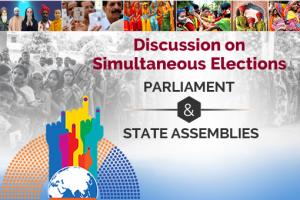- Chandigarh UT
- Creative Corner
- Dadra Nagar Haveli UT
- Daman and Diu U.T.
- Department of Administrative Reforms and Public Grievances
- Department of Biotechnology
- Department of Commerce
- Department of Consumer Affairs
- Department of Industrial Policy and Promotion (DIPP)
- Department of Posts
- Department of Science and Technology
- Department of Telecom
- Digital India
- Economic Affairs
- Ek Bharat Shreshtha Bharat
- Energy Conservation
- Expenditure Management Commission
- Food Security
- Gandhi@150
- Girl Child Education
- Government Advertisements
- Green India
- Incredible India!
- India Textiles
- Indian Railways
- Indian Space Research Organisation - ISRO
- Job Creation
- LiFE-21 Day Challenge
- Mann Ki Baat
- Manual Scavenging-Free India
- Ministry for Development of North Eastern Region
- Ministry of Agriculture and Farmers Welfare
- Ministry of Chemicals and Fertilizers
- Ministry of Civil Aviation
- Ministry of Coal
- Ministry of Corporate Affairs
- Ministry of Culture
- Ministry of Defence
- Ministry of Earth Sciences
- Ministry of Education
- Ministry of Electronics and Information Technology
- Ministry of Environment, Forest and Climate Change
- Ministry of External Affairs
- Ministry of Finance
- Ministry of Health and Family Welfare
- Ministry of Home Affairs
- Ministry of Housing and Urban Affairs
- Ministry of Information and Broadcasting
- Ministry of Jal Shakti
- Ministry of Law and Justice
- Ministry of Micro, Small and Medium Enterprises (MSME)
- Ministry of Petroleum and Natural Gas
- Ministry of Power
- Ministry of Social Justice and Empowerment
- Ministry of Statistics and Programme Implementation
- Ministry of Steel
- Ministry of Women and Child Development
- MyGov Move - Volunteer
- New Education Policy
- New India Championship
- NITI Aayog
- NRIs for India’s Growth
- Open Forum
- PM Live Events
- Revenue and GST
- Rural Development
- Saansad Adarsh Gram Yojana
- Sakriya Panchayat
- Skill Development
- Smart Cities
- Sporty India
- Swachh Bharat (Clean India)
- Tribal Development
- Watershed Management
- Youth for Nation-Building
Discussion on Simultaneous Elections

Start Date :
Sep 07, 2016
Last Date :
Oct 16, 2016
00:00 AM IST (GMT +5.30 Hrs)
The desirability of holding simultaneous elections for the Lok Sabha and Vidhan Sabhas has been discussed at various levels. A considered view is that simultaneous elections will ...


That would be a welcome step. It would save great amount of money and labor hours for the nation. Political positivity would be an additional benefit.
**New ideas pass through three phase: It can't be done. It probably can be done, but it's not worth doing. I knew it was a good idea all along!**
Very good thought I agree with government of India's this thought
As a 22 yr old who has volunteered for the 2016 assembly elections in TN, I give some notable comments about the simultaneous election processes
I am proposing something more democratic, more constructive, though a bit drastic....
All these should be online linked to UID no. all will be seamless and transparent.
All these should be online linked to UID no. all will be seamless and transparent.
I am agree with the simulations election of loksabha and vidhansabha.In my opinion the period of governance should be of 3 years.Because we could see that most of the government do their duty only in last two years for attracting the voters.This will help to decrease corruption in such a way-in period of 5 yrs political leaders think of making money in first three yrs,it means they work only two last yrs.if the goverance would be of 3 yrs political leaders would do their duty at least two yrs..
Yes, Definitely Yes
Today the entire politics of India is centred arround the next election.
Any move any political party makes, is seen as an election move, irrespective of its motive or connection.
To keep the Nation Coherent for 5 years is a great thing this system can do.
Apart from that of course we save millions of rupees, man power and prevent policy paralysis in the states as well.
I have also a separate opinion...why not we will conduct direct elections for the post of prime minister and chief ministers.this will also save time ,money and corruption in a big way.
After winning pm will choose his own cabinet from within party..and CM also choose in the same way.fighting to get tickets also be stopped.if it is not possible in our country than simultaneous election must been held.